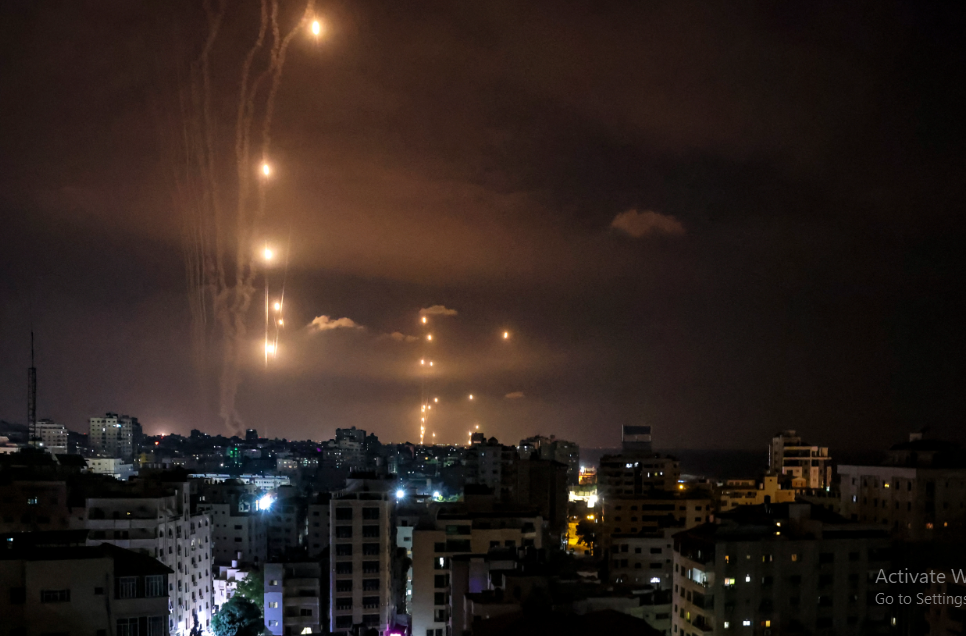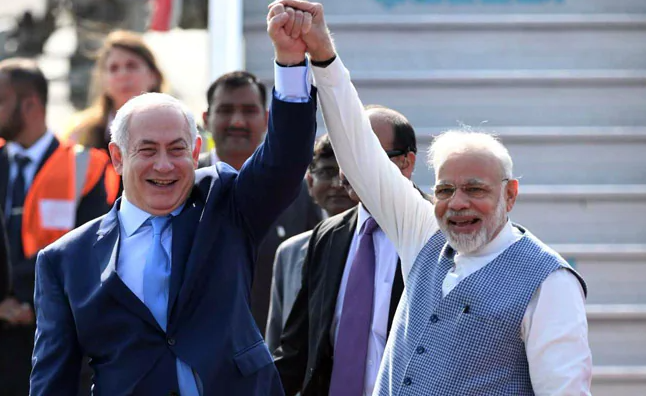As the conflict between Hamas and Israel intensifies, India finds itself in a diplomatic quandary, especially at a time when it sought to expand its role in the Middle East through regional alliances and increased diplomatic engagement.
India’s Response to the Israel-Gaza Conflict:
In response to reports of Hamas launching rocket attacks on Israeli cities, Prime Minister Narendra Modi took to social media platform X (formerly known as Twitter) to express his deep shock at the news of these terrorist attacks. He extended condolences to the innocent victims and their families while reaffirming India’s solidarity with Israel during this challenging time.
The Ministry of External Affairs has not issued an official statement as yet. External Affairs Minister S. Jaishankar and the ministry’s official handle have retweeted the Prime Minister’s post.

The ongoing violence in Israel has sharply divided public opinion, with some condemning the terrorist attack, while others suggest that Israel’s actions in Palestine have provoked this response. The Prime Minister’s post is viewed as a clear message of support for Tel Aviv against this backdrop.
Significance of India’s Response:
India’s response is significant in light of how China and Pakistan, with which India has strained relations, reacted to the violence. China expressed “deep concern” over the escalation of tension and violence between Israel and Palestine, despite having no specific bilateral issues with Tel Aviv. Pakistan’s Prime Minister Shehbaz Sharif blamed Israel’s “illegal occupation” for the cycle of violence and questioned Israel’s denial of Palestinian self-determination and statehood.
India’s Gulf Focus:
The Israel-Gaza conflict arises just a month after India, along with the US, Saudi Arabia, the UAE, France, Germany, Italy, and the European Union, announced the India-Middle East-Europe Economic Corridor during the G20 Summit in New Delhi. Prime Minister Modi hailed this connectivity project as the foundation of world trade for centuries and viewed it as a counter to China’s Belt and Road Initiative.
The escalating violence presents a challenge for Saudi Arabia, particularly when the US was mediating the normalization of its ties with Israel. Hamas’ attack is seen as a message to Riyadh. Saudi Arabia has called for an immediate cessation of violence, expressing concerns about an “explosive situation” resulting from the continued occupation and denial of Palestinian rights, indicating reluctance to pursue normalization while ignoring Palestinian interests.

India’s relations with Saudi Arabia have strengthened under the Modi government, marked by increased bilateral visits and the signing of the Strategic Partnership Council (SPC) Agreement. PM Modi was also honored with the Kingdom’s highest civilian honor. His visits to Middle Eastern nations like Jordan, Oman, UAE, Palestine, Qatar, and Egypt underscore India’s commitment to maintaining a significant presence in the region.
India’s Evolving Stand on Israel vs. Palestine:
India’s stance on the Israel-Palestine conflict has evolved since Independence. India recognized the State of Israel only in 1950, driven by various reasons, including opposition to the creation of two nations based on religion and the desire not to offend Arab countries.
Over the years, India maintained limited relations with Israel while engaging with the Palestine Liberation Organization (PLO) led by Yasser Arafat.
However, significant shifts occurred due to Iraq’s invasion of Kuwait and the fall of the Soviet Union. India established full diplomatic ties with Israel in 1992, and the relationship strengthened further under the BJP government led by Atal Bihari Vajpayee. Israel’s support during the 1999 Kargil War solidified the partnership, although India publicly supported the Palestinian cause.
The Current Challenge for India:
The ongoing violence presents a challenge for India, as it could impact its outreach in the Middle East and force it to choose sides—a situation India typically avoids due to its trade and strategic interests.
During the Ukraine conflict, India maintained a neutral stance and emphasized dialogue over violence. India’s purchase of Russian oil amid Western sanctions against Russia also drew criticism, but India prioritized the best deal for its citizens.
The current situation is more complex, given India’s deep-rooted relations with the Middle East, encompassing strategic, economic, and cultural aspects. Saudi Arabia ranks as India’s fourth-largest trading partner, while India is the largest arms customer for Israel. Relations with Tel Aviv have significantly improved under the Modi government, with reciprocal visits by both Prime Ministers.
India’s cautious approach to the Israel-Gaza conflict underscores the high stakes involved.
